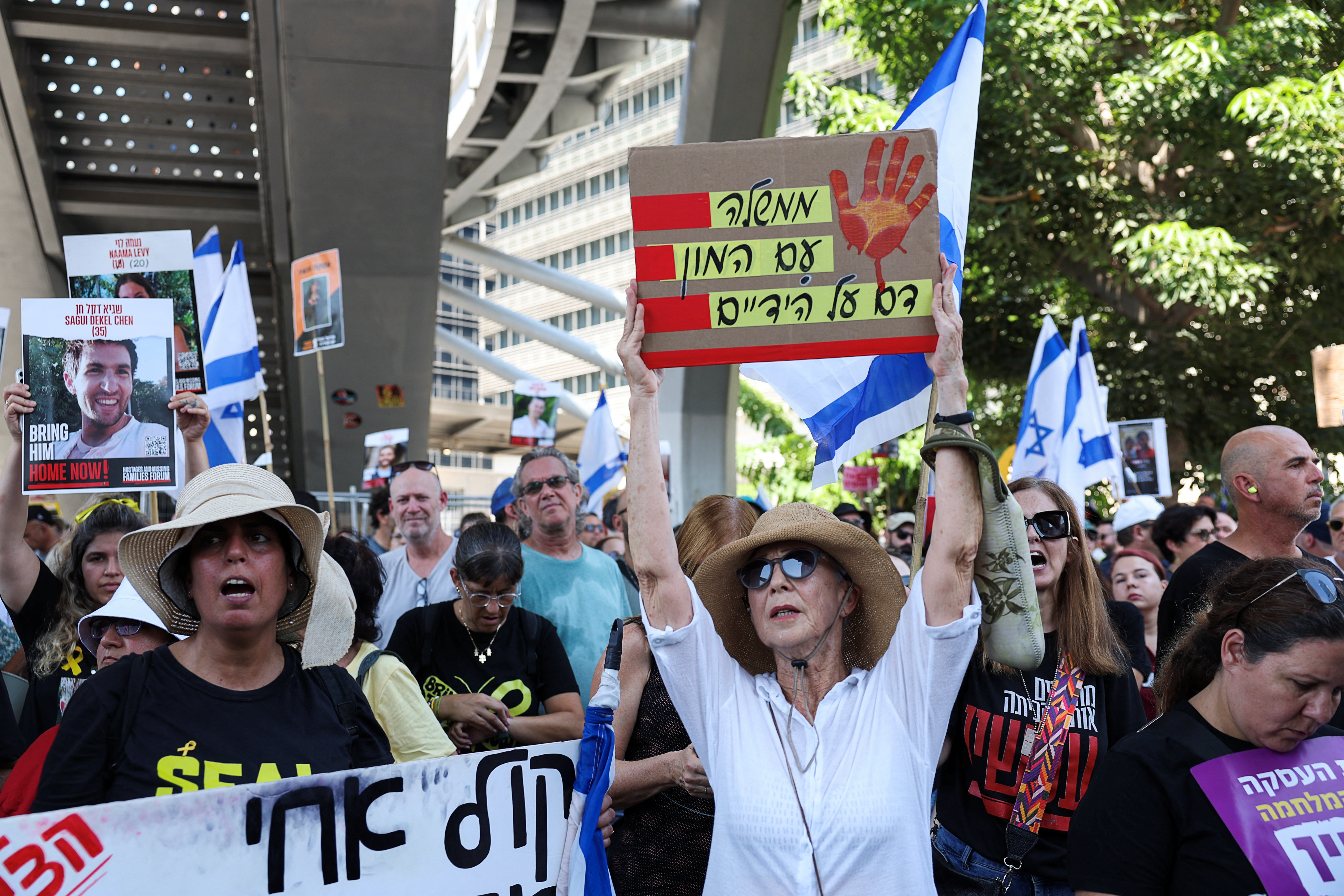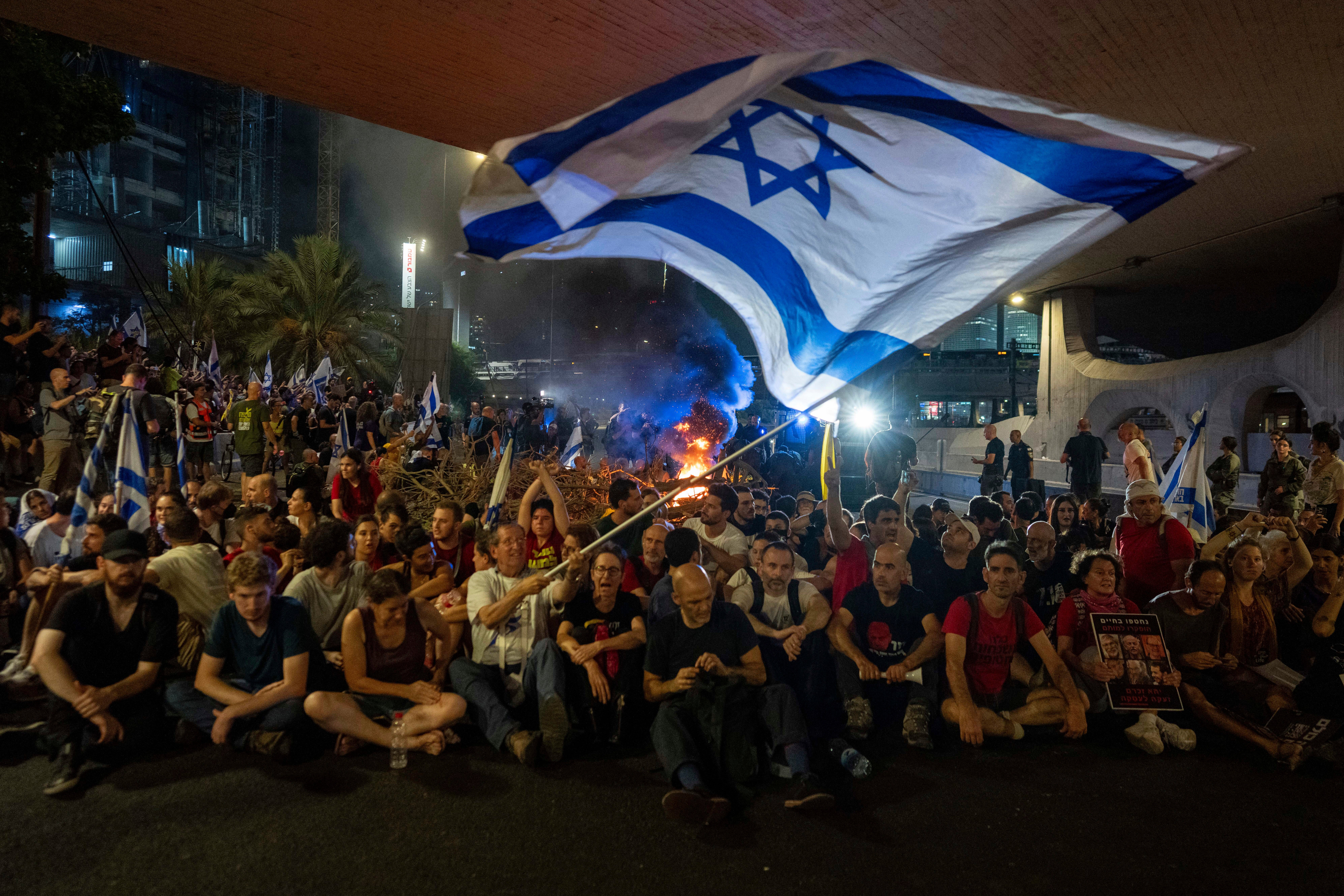How effective will Israel’s general strike be?
The unprecented action could mark a symbolic shift in Israeli public opinion

Your support helps us to tell the story
From reproductive rights to climate change to Big Tech, The Independent is on the ground when the story is developing. Whether it's investigating the financials of Elon Musk's pro-Trump PAC or producing our latest documentary, 'The A Word', which shines a light on the American women fighting for reproductive rights, we know how important it is to parse out the facts from the messaging.
At such a critical moment in US history, we need reporters on the ground. Your donation allows us to keep sending journalists to speak to both sides of the story.
The Independent is trusted by Americans across the entire political spectrum. And unlike many other quality news outlets, we choose not to lock Americans out of our reporting and analysis with paywalls. We believe quality journalism should be available to everyone, paid for by those who can afford it.
Your support makes all the difference.A nationwide general strike is underway in Israel in the largest trade union action since the 7 October attacks by Hamas last year.
The move has led to closures in parts of the country as protesters demand Benjamin Netanyahu agree to a ceasefire deal that would bring remaining hostages home.
Organised by Histadrut, the country’s largest trade union, the one-day strike comes after tens of thousands of people rallied in Israel on 1 September, outraged by the killings of six Israeli hostages held by Hamas. Protesters have blamed the prime minister for failing to negotiate a ceasefire deal to bring hostages home.
Mr Netanyahu has hit back against these claims, saying “whoever murders abductees does not want a deal.”
“We, for our part, did not let up,” he added. “The Israeli government is committed, and I am personally committed, to continue striving for a deal that will return all our abductees and guarantee our security and existence.”
Anonymous briefings leaked to the press have cast doubt on the prime minister’s claim, as it is alleged his administration has resisted a deal due to interest in holding strategic territory in Gaza. Believed to be of particular concern is a strip along the Egyptian border called the Philadelphi corridor.

On the same day as the general strike, the death toll in Gaza reached 40,786, the Gazan health ministry said.
Announcing the general strike, Histadrut chairman Arnon Bar-David said: “This is not a matter of right or left; it is a matter of life and death.
“All the heads of the security establishment support the deal, and it is the government’s responsibility to bring our hostages home. It is inconceivable that our children will not return because of narrow considerations and interests.”
At around midday on Monday, Israel’s labour court ruled that the general strike must end earlier three hours earlier than expected. Union officials had previously said they would respect any such judgement as “people of law.”
How effective will the Israel general strike be?
Dozens of businesses closed across Israel as a result of the general strike on Monday, both in the public and private sector. Hospitals, schools, transport and government services have all been affected.
However, of Israel’s 77 municipalities, only three had firmly committed to participating in the action. These are Tel Aviv, Haifa, and Givatayim.
This is a small number overall, but the symbolic power of the districts that have participated is strong. Officials in the central districts of Tel Aviv and Haifa are both participated in the strike. These are the second and third most populous cities in Israel, and with the east-Tel Aviv district of Givatayim represent a population of nearly 800,000.
In Tel Aviv, the action had threatened to bring Israel’s busiest airport Ben Gurion to a standstill. Flights ultimately resumed after a two-hour standstill, causing severe disruption but less than was expected. In Haifa, workers at the city’s leading port also went on strike, causing disruption to the key trade channel.
Will there be further strikes?
While the strike may not have been as disruptive as union leaders had hoped, the unprecedented move could pave the way for similar action in the future.
Sunday’s protest demonstrated that significant parts of the population are demanding a ceasefire and hostage deal, and pressure continues to mount on Mr Nethanyahu to bring the remaining captives home alive nearly year on from Hamas’ deadly attacks.
Join our commenting forum
Join thought-provoking conversations, follow other Independent readers and see their replies
Comments